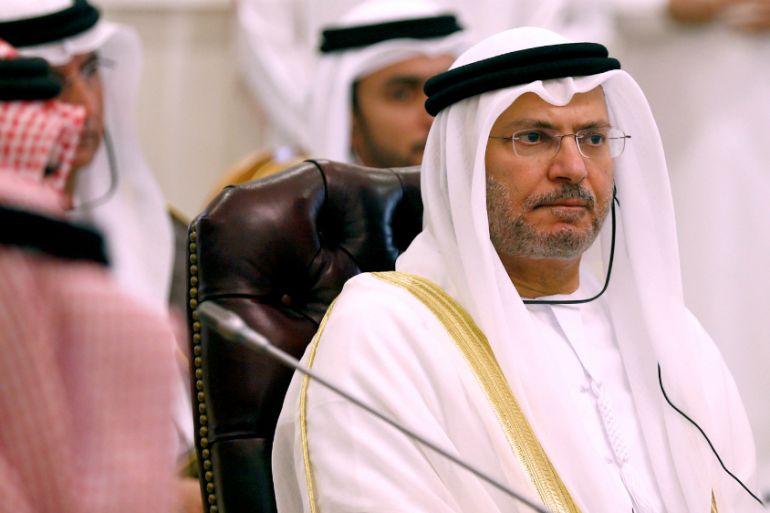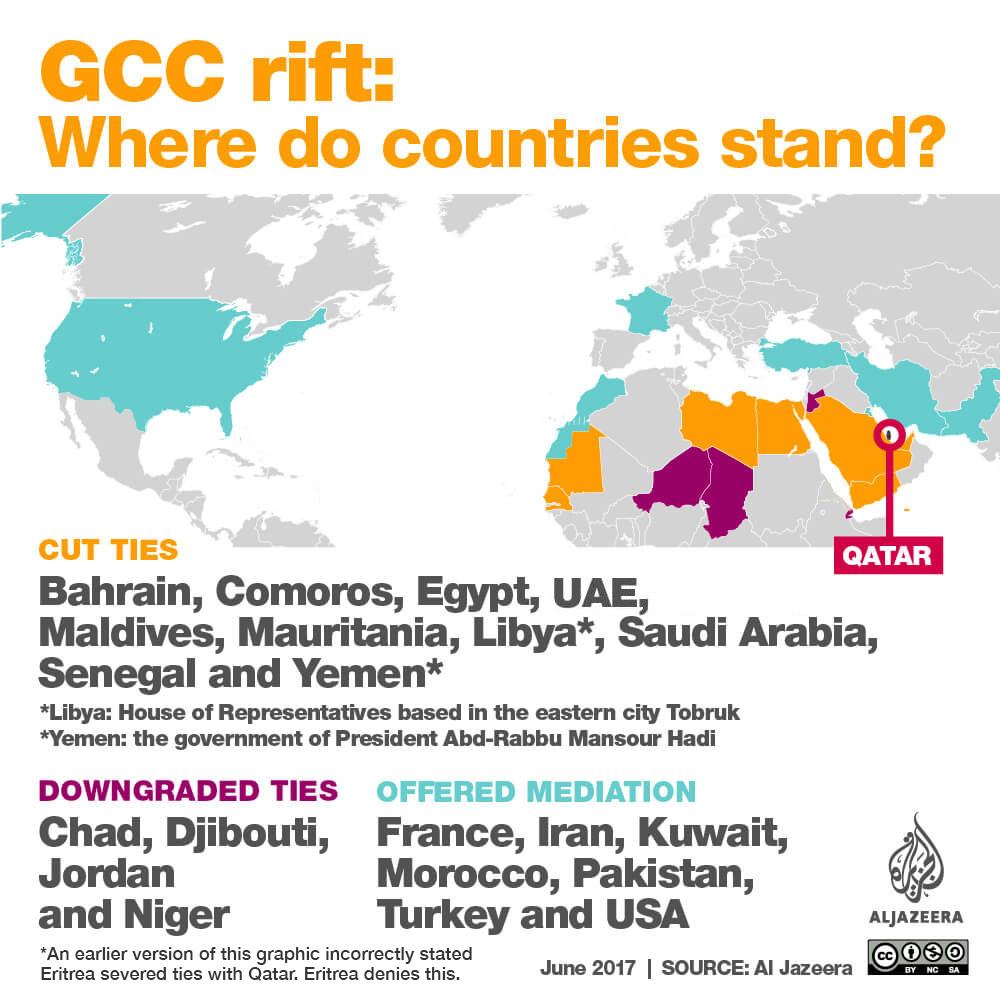Gargash: Gulf states don’t seek Qatar ‘regime change’
UAE minister also says if demands are not met the ‘alternative is not escalation’, but the ‘parting of ways’.

A top minister from the United Arab Emirates has said the Arab countries imposing a blockade on Qatar are not seeking to force out the country’s leadership, but are willing to “part ways” if it does not agree to their list of demands.
UAE Minister of State for Foreign Affairs Anwar Gargash told reporters in Dubai on Saturday that his country and its allies – Saudi Arabia, Egypt and Bahrain – do not want “regime change” in Qatar, but “behavioural change”.
Keep reading
list of 4 itemsQatar emir condemns ‘genocide’ in Gaza, urges ceasefire at GCC summit
‘Enduring commitment’: Key takeaways from US-GCC joint statement
Analysis: Efforts to end Assad isolation gather speed after quake
The comments come after the four countries presented a list of 13 demands to Qatar on Thursday, according to a report by the state-run Qatar News Agency.
READ MORE: All the latest updates on the Qatar-Gulf crisis
Qatar dismissed the 10-day ultimatum, which included shutting down the Al Jazeera network, closing a Turkish military base and scaling down ties with Iran.
Doha said the list of demands “confirms what Qatar has said from the beginning – the illegal blockade has nothing to do with combating terrorism, it is about limiting Qatar’s sovereignty, and outsourcing [Qatar’s] foreign policy”.
It added that it is preparing an official response after confirming the receipt of the demands.
Referring to the ultimatum, Gargash said “the alternative is not escalation”, but the “parting of ways”, adding that it is “very difficult for [the UAE and its allies] to maintain a collective grouping”.
He did not make clear what more could be done since the four Arab states have already cut diplomatic relations with Doha and severed most commercial ties.
READ MORE: Qatar says Saudi-led demands not ‘reasonable or actionable’
Kuwait has been acting as a mediator to defuse the crisis that erupted on June 5 when Saudi Arabia, the UAE, Bahrain and Egypt announced they were severing relations with Qatar, accusing it of supporting “terrorism”.
The four countries have not provided any evidence, and Qatar has repeatedly denied the allegations as baseless.
Ibrahim Fraihat, associate professor in conflict management and humanitarian action at the Doha Institute, said that Qatar’s response is “most likely going to be a very short document”.
“With such high expectations and not very realistic demands I don’t think there’s much room to negotiate,” he told Al Jazeera.
“Because it’s no longer about the issue of terrorism or the relationship with Iran – it’s about much more than that. It’s about media freedom, the right of the people in the region to receive information and people around the world to get information about the Middle East,” he added.
Fraihat said the crisis is “serious”, noting that there is a “huge gap” between the positions of the two sides.
“I think this will require very intensive diplomacy from Kuwait in order to bridge the gap, which is going to take not weeks, but months,” he said.
